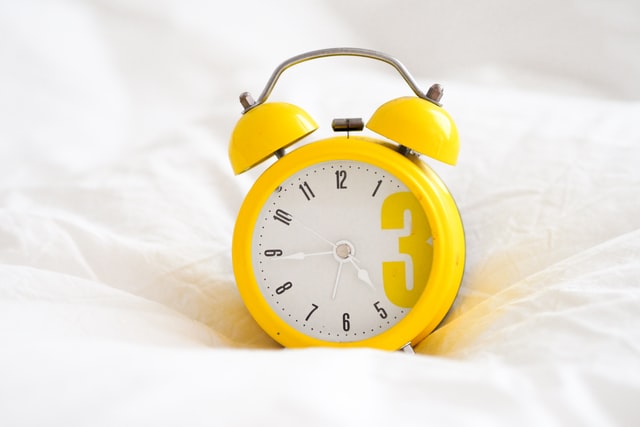Visit or Call Our Sleep Guide Texas Showrooms
Our Texas Showrooms Are Here To Help With All Your Favorite Online Brands! And We Offer Exclusive Coupons To Save More!
Learn MorePlease note, we are proudly supported by our readers. The product links are referral based and if you purchase an item we make a small commission. For more information please see our disclosure page.
With coronary heart disease being the leading cause of death within the United States, many are looking for ways they can improve their heart health. With so many ways to improve your heart health it is no surprise that proper and adequate sleep is one way.
Below we will look into just how sleep impacts the health of your heart. As well as various ways to improve your sleep for not only better heart health but overall health too.

Sleep deprivation can also increase likelihood of developing health issues that could effect your heart health. Some of these potential health issues include – Obesity, Diabetes, Increased Cortisol Levels, and Cancer.

Even as little as one night with less than 5 hours of sleep can take a negative toll on your immune system. This is because our immune systems are very active while we sleep. Without the time in order to work all of their functions, this can mean you may be more susceptible to getting sick.
If you work nights, then you should take a look at out post: The Best Sleep Schedule For Night Shift
Sleeping is a time for our bodies and minds to rest and recuperate. In a sense we are resting in order to recharge our batteries and do some general maintenance on our bodies so that we can restart fresh the following day.

When you do not get enough sleep every night, your blood pressure tends to increase. If you are chronically sleep deprived, it becomes far more likely that you will experience hypertension (high blood pressure). This can have severe health ramifications, and can lead to heart disease among other dangerous health risks.
Your heartbeats tend to be very regular and will slowly increase or decrease in rate, with a direct correlation to an external source. Whether that is due to a burst in physical activity, stress, surprise, etc.
Heart palpitations typically occur without any seeming triggers. They are sporadic and are not seemingly set off by any outer influence. However, it has been noted before that some experience an increase in palpitations or general arrhythmia whenever that are notably sleep deprived. While it is undetermined as the the reasoning behind why people experience this, it is something to keep in mind.
Is stress making it difficult for you to get to sleep at night? Then you may enjoy reading our blog post: Why Can’t You Sleep When You’re Stressed?

First your immune system is unable to perform vital functions that occur as you sleep. Then inflammation increases in the body which can be a trigger for plague build up.
As we mentioned previously a lack of sleep can also increase your blood pressure. When you are consistently living in a state of stress, elevated blood pressure, due to a lack of sleep, this becomes a recipe for heart disease.
Why do we need sleep? This is a great question with a long list of answers. Click the link to learn more about the importance of sleep, and we we need it.

When you are falling asleep and waking up around the same time each and everyday, your circadian rhythm gets stronger and it becomes much easier to fall asleep quickly, increases sleep quality, and helps you to feel better rested throughout the day. Like most things in life, it is not the one night of sleep that will make or break your sleep health, but a consistent sleep schedule that truly effects your health.
Trying to get back to a regular sleep schedule? Then you may enjoy our post: How To Fix Your Sleep Schedule

While most of us do not have the luxury of even considering spending more than 10 hours in bed, this can also be related back to a general lack of movement/activity. Making your time sitting in an office chair not much better for your health than laying in bed.
Want to try and wake up earlier in the mornings? If so, you will love out post all about how to Become A Morning Person

Whether you only work a few night shifts a month, or you only work the night shift. We highly recommend working as little night shifts as possible, it not completely changing your schedule to only working throughout the day. Especially if you are concerned about your heart health, or if you have heart issues or cancer in your family history.
Learn more about sleep and cancer in our post: Cancer & Sleep

Caffeine can remain active in your system for up to 6 hours. Which means that afternoon pick me up could keep you from being able to fall asleep in the evenings. So even if you can have caffeine according to your doctor, you may want to be mindful of when you decide to stop drinking caffeine for the day.
Learn more about the sleep benefits on cutting out caffeine in our post: Caffeine Free: The Benefits of Quitting Caffeine

If you are unable to rest through the night, then you may want to consider having a longer sleep time or taking naps throughout the day. While uninterrupted sleep is best, napping can also provide you the tools you need to stay healthy.

You may even find that you are getting far more or far less sleep than you ever imagine you were getting. Keeping a journal where you write down this kind of information can help your doctor know you better and help you to get the care and medical advice you really need.
Not sure how well you sleep, or even how much? Then you should check out our post all about how to Keep A Sleep Journal
When it comes to your health, we always recommend reaching out to your medical doctor for the best advice for you and your health. This is especially true when it comes to something as vital as your heart health. However, we hope these sleep tips help you to stay as healthy as possible from head to toe. When you are sleeping well, it often has great benefits for your overall physical as well as you mental health.

If you have any lingering questions for us, we would be happy to help answer them for you. Send us a message through our Contact Us page and we will get back to you as soon as we can.
Our Texas Showrooms Are Here To Help With All Your Favorite Online Brands! And We Offer Exclusive Coupons To Save More!
Learn More